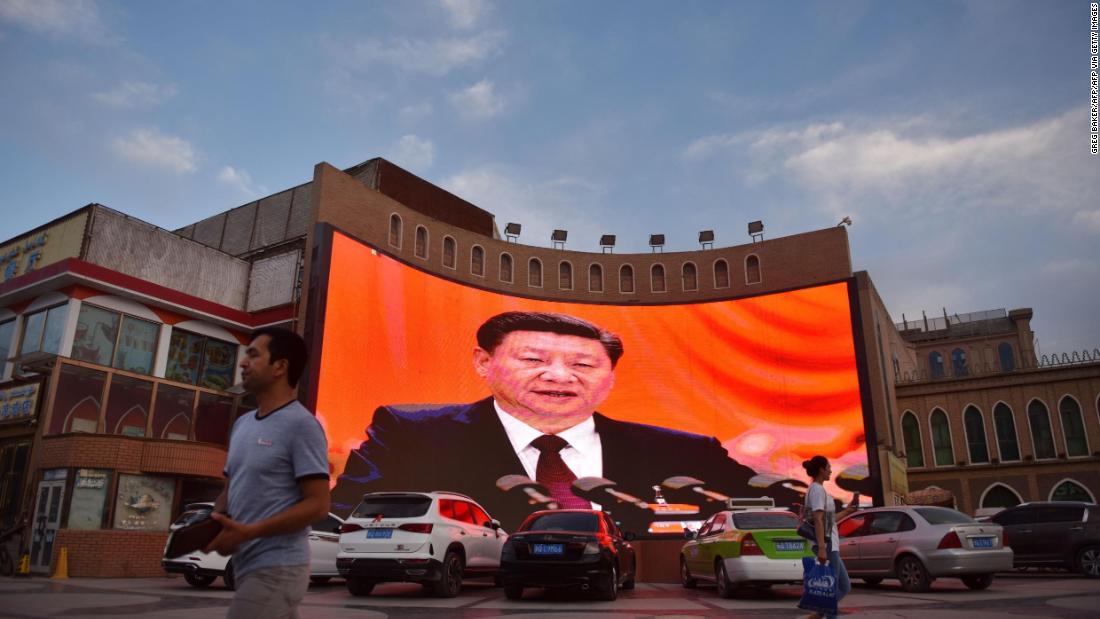Although Washington previously sanctioned officials over Xinjiang and blocked some imports linked to forced labor, Tuesday’s statement is the first time it has officially used the term genocide.
Genocide is, according to the United Nations, “the intention to destroy, in whole or in part, a national, ethnic, racial or religious group”. The declaration, although without automatic penalties, marks a rare step for the United States government, which has historically shown some hesitation in linking the designation of genocide to an ongoing crisis.
And it will be up to the new Biden government, which has supported the claim that the situation in Xinjiang is genocide, to take action on this issue, or to wither in the face of an aggressive Beijing trying to force a “restart” on its terms.
Bad weather
Millward pointed out that the Trump administration blocked several attempts by Congress to take action against Xinjiang in 2018 and 2019, while the president sought a trade deal with China, while Pompeo sought credit for exposing atrocities revealed by journalists and researchers “years earlier. for Trump to show his ‘good friend’ Xi. ”
More than anything else, Pompeo’s final shot at the bow of Beijing appears to have been an attempt to tie the hands of the new government.
Restart with conditions
Beijing is trying to influence Biden’s policy, speaking of a readjustment, while signaling possible repercussions if he continues with his predecessor’s aggressive stance towards China.
Chinese state media has been celebrating the end of the Trump administration in recent days.
Hours before Trump left the White House for the last time, the state news agency Xinhua tweeted in English an image of the US Congress with the words: “Good trip, Donald Trump!”
The measures prohibit former employees “and their immediate family members” from entering China, Hong Kong and Macau, and prohibits them “and the companies and institutions associated with them” from doing business with China. This could prevent those sanctioned from taking on lucrative post-management roles in think tanks or consulting firms focusing on China, a consideration that Beijing hopes will influence new Biden officials not to take strident positions on these issues.
Speaking on Wednesday, Chinese Foreign Ministry spokeswoman Hua Chunying blamed “Pompeo and other anti-China and anti-communist forces” for fomenting “various misunderstandings in matters related to Xinjiang”.
“President Biden repeatedly emphasized the word unity in his inauguration speech,” said Hua, the spokeswoman, on Thursday. “I think that is exactly what current China-US relations need. Because in the past four years, some anti-China politicians in the United States have told a lot of lies and incited a lot of hatred and divisions because of personal gains.”
Initial challenge
The way in which the Biden government deals with the Xinjiang issue can be a major test for this relationship. If Blinken is serious about maintaining the designation of his predecessor, then presumably this must be followed by additional sanctions, or some kind of international action, otherwise Washington is in danger of recognizing an ongoing genocide and waiting while it happens.
But international action could be hampered by the way Pompeo made the statement.
Nor has the international community in general shown any great haste to act on this issue.
“The stories coming out of Xinjiang are pure horror. The story in Brussels is that we are ready to sign an investment treaty with China,” said European lawmaker Guy Verhofstadt at the time, ignoring alleged promises about forced labor contained in the agreement. “In these circumstances, any Chinese signature on human rights is not worth the paper on which it is written.”
Biden may have more influence in Brussels and London than Trump ever had, and he certainly talked about the need to rebuild America’s international position after Trump’s four years. But whether he uses his position to lobby for action in Xinjiang, or a tougher line towards China in general, remains to be seen.
